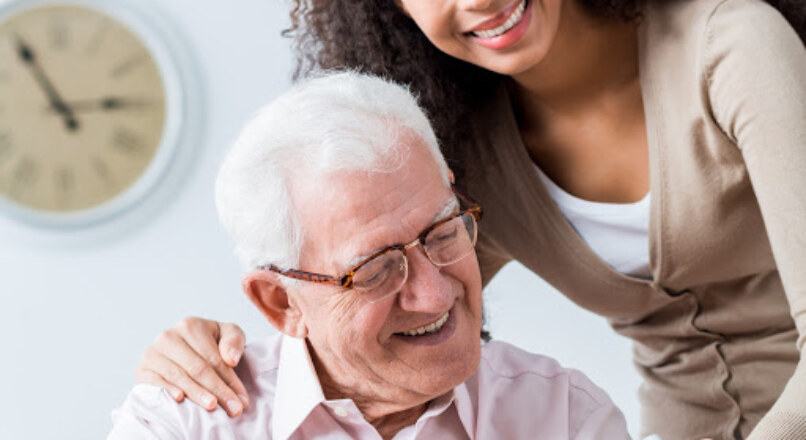
6 Great Benefits of Seniors Using Technology
How Technology Helps Improve Elder Care
Technology is rapidly changing the way we work, cook, socialize, finance, exercise, and more, including how we care for our aging loved ones.
Being a caregiver is one of the toughest roles to fill because of the constant juggling act, from remembering which medication needs to be taken at what time to staying on top of your parent’s finances.
It can be very difficult to keep track of another person’s whole world while you’re trying to manage your own life at the same time. Technology is something we use every day – so why not for elder care? Continue reading to discover the wide variety of ways technology can help improve caregiving for the seniors in your life.
#1. Medication Management
Seniors use more medications than any other age group in the United States. In fact, their average number of medical prescriptions can range from 15 to 18 medications. Not only is that an alarmingly high number of medications, but each also has specific requirements – the time of the day, with or without a meal, dissolved under the tongue, chewed, topical, etc.
New technology exists that can help keep track of your loved one’s medication schedule. Not only will this technology help keep detailed medication requirements at the forefront, but it will also give you the greatest gift – peace of mind.
#2. Safety Devices
Cutting edge technology is bringing safety to a whole new level. For caregivers and seniors, technology such as cameras and home security devices can help increase awareness of everyone’s whereabouts.
As a caregiver, you can monitor via your smartphone who is physically present on your loved one’s property or in their home. Monitoring the property is just one aspect- another is ensuring the health and safety of the senior.
Unfortunately, it is not uncommon for a senior to fall and then struggle to get up and get help. With just the push of a button or access to voice-activated technology, seniors can receive proper medical attention right away.
#3. Social Connection
As seniors get older, their social circles get smaller- they may be left without their spouse to watch their children grow up and start their own families. Elderly loneliness can actually affect health in a variety of ways.
Seniors who isolate themselves have a higher chance of Alzheimer’s, dementia, heart disease, and more. Elder loneliness is said to be equivalent to smoking 15 cigarettes a day. According to a study by the University of California San Francisco (UCSF), more than 40% of seniors periodically experience loneliness.
One way to prevent elder isolation is to use technology for social engagement. FaceTime, email, phone calls, or any other form of socializing can truly make a difference for their health and happiness.
#4. Mental & Physical Exercise
Not many people think of technology as a way to help seniors get their daily dose of exercise. For seniors who can’t easily leave their home or live in a location with harsh weather, it is not always easy to get physical exercise.
It is crucial for seniors to keep moving, strengthen their muscles, and keep their flexibility, because as we get older, our muscles start to deteriorate. There are many smartphone apps and video games that have different types of classes and exercises specifically created for seniors.
Online puzzles and games can be used by seniors to improve cognitive health. Seniors need to keep their minds sharp, and spending time on cognitive health exercises specifically designed for that purpose is one of the best ways to do so.
#5. Health Organization
Whether you are a caregiver or a senior living on their own, keeping track of health paperwork, doctor information, appointments, medication, restrictions, etc. can be extremely overwhelming.
The only way to accomplish all of these elements is to be as organized as possible. Writing in different notebooks and keeping a messy cabinet is just going to make your life more difficult. If paperwork goes missing or gets damaged, even more stress will be added to your daily routine.
Advanced technology can keep everything documented and on file so you’ll always have access to it. Medical history, physician contacts, medication schedules, and health conditions can now be organized and easily accessible with smartphone apps and different online platforms.
#6. Telemedicine
If you have never heard of the term “telemedicine,” it is defined as any form of medical care delivered remotely, through technologies such as telephones, tablets, and video conferencing platforms (according to the American Telemedicine Association).
No need to worry about transportation or missing appointments – many doctor’s appointments can now be conducted in the comfort of the patient’s own home.
For caregivers, this form of technology reduces stress because in an instant, all your medical questions and concerns can be answered by a professional physician – not through reading false medical information on the internet!
Telemedicine can help you achieve convenient doctor visits, have your questions answered, and reduce costs. Think about it – with traveling and getting billed for missed visits, telemedicine is an excellent way to save time and money as a caregiver.
Did we miss anything? Let us know the technology you use that improves your ability to care for elderly members in your family.
About the Author
Kristen is writer working with eFamilyCare, which is an innovative and beneficial tool for all caregivers. eFamilyCare is an online family caregiving service that connects you with experienced care advisers devoted to assisting you in caring for your loved ones.
Our expert care advisers will aid you in creating a tailor-made program that offers continuous support for your family caregiving. Take the stress out of caregiving and sign up for eFamilyCare today.

Leave a reply